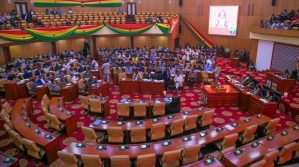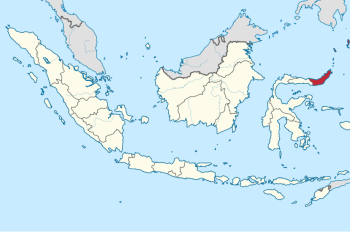
On Wednesday, February 28 Ghana’s legislative body passed a bill in the country’s parliament that introduces new criminal penalties for LGBTQ+ activity, advocacy, and promotion. This development follows the rejection last Wednesday of an amendment by ruling-party lawmaker Alexander Afenyo-Markin that would have replaced prison time with non-custodial sentences including counselling. Currently, gay sex is punishable in the West African nation by up to three years in prison, a penalty that would increase to five years if the President Nana Akufo-Addo signs the bill into law.
If enacted, the law would prohibit gay marriages and subject citizens who have undergone gender reassignment surgery to potential imprisonment for up to five years. Furthermore, the bill aims to restrict public displays of affection between individuals of the same sex or those who identify as a gender different from their biological sex and criminalize individuals identifying as LGBTQ+ or engaging in same-sex relationships or sexual activities. Penalties are also applicable to cross-dressing.
General Secretary of the Association of Evangelicals in Ghana Rev. Jude Hama challenged Afenyo-Markin’s arguments for less punitive punishments.
“Do armed robbers and burglars have human rights? Yet when they are convicted of their human behaviours, which are inimical to the well-being of society, they are incarcerated,” he said. “So why can’t those who practice grossly deviant human sexual behaviours, which are also inimical to the well-being of society and threaten the survival of the human race, be incarcerated?”
The United Nations, in a 2021 report, criticized the proposed legislation, known as The Promotion of Proper Human Sexual Rights and Ghanaian Family Values. It stated that it would institutionalize “a system of state-sponsored discrimination and violence” against sexual minorities.
However, African religious leaders frequently decry such criticism as both misguided and hypocritical. They point to the criminalization of polygamy, incest, sexual relations with minors and other forms of physical relationships that are deemed immoral in most Western nations and are punished with punitive measures which include prison sentences.
It also presents itself as a new form of colonialism if Western nations seek to tie humanitarian aid to requirements of normalizing and legalizing behaviour that is incompatible with biblical values as well as African culture.
Meanwhile, the increasing openness of certain historic global church traditions towards accepting non-traditional family models has led to tensions between believers in the Global North versus the Global South.
One example is the Roman Catholic Church where Pope Francis has previously condemned laws criminalizing homosexuality as “unjust,” emphasizing that God loves all individuals as they are and urging Catholic bishops to embrace LGBTQ+ individuals within the Church.
In a recent interview with Italian newspaper La Stampa, Pope Francis acknowledged the perspective of Catholic bishops in Africa who oppose a new Vatican policy authorizing same-sex blessings.
“Those who protest vehemently belong to small ideological groups…” he said. “A special case are Africans: for them, homosexuality is something ‘bad’ from a cultural point of view, they don’t tolerate it.”
African Catholic bishops had earlier expressed disagreement with Pope Francis’s stance on same-sex marriages, emphasizing the unchanged doctrine of the Church regarding Christian marriage and sexuality. In a statement, they asserted, “The Church's doctrine on Christian marriage and sexuality remains unchanged… For this reason, we, the African Bishops, do not consider it appropriate for Africa to bless homosexual unions or same-sex couples.”
The bill was sponsored by Ghana’s faith sector, which comprises a coalition of Christian, Muslim, and Ghanaian traditional leaders.





